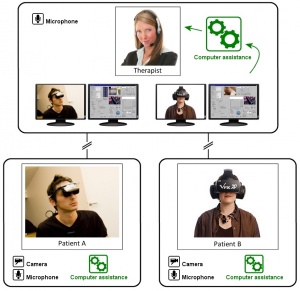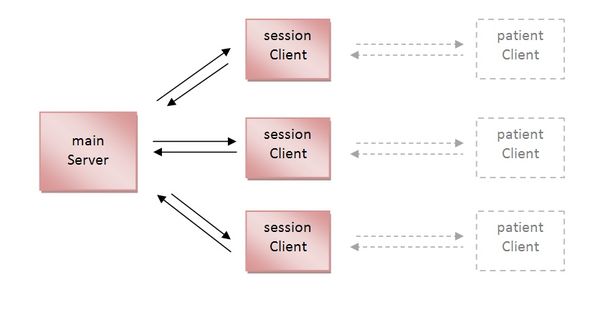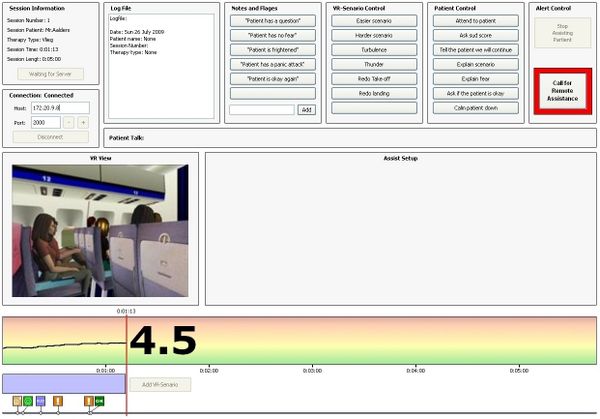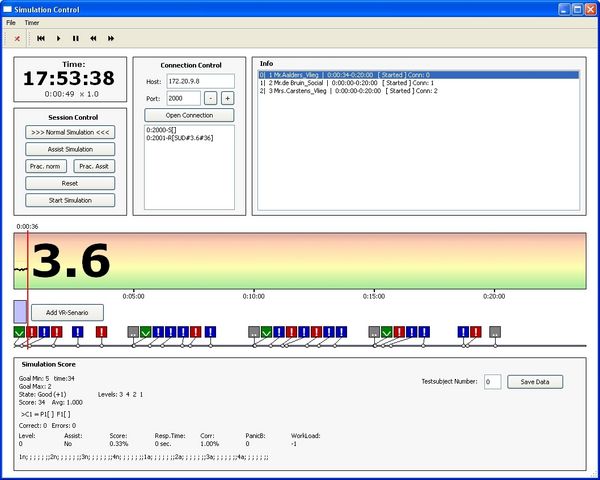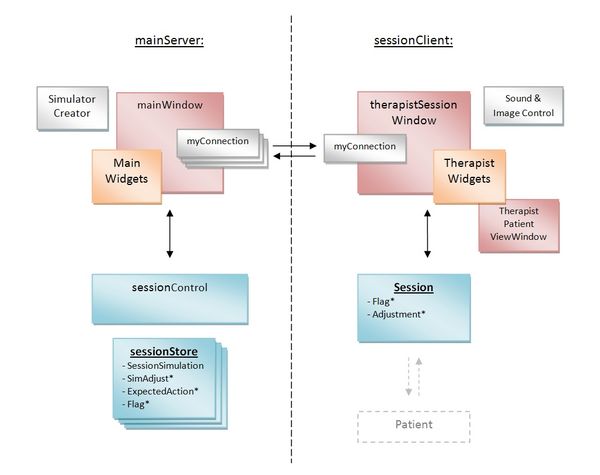Difference between revisions of "Designing a Multiple patient VRET system"
(→Results) |
(→Results) |
||
| Line 152: | Line 152: | ||
[[Image:MP_VRET_Mesurments per observation.sav]] | [[Image:MP_VRET_Mesurments per observation.sav]] | ||
| − | [[MP_VRET_Questionaires.sav]] | + | [[Image:MP_VRET_Questionaires.sav]] |
Revision as of 11:40, 14 August 2009
By Christian Paping, Tu-delft, Human-Computer Interaction
Promo video:
<anyweb>http://www.youtube.com/v/sSm9l8Al46A&hl=en&fs=1&</anyweb>
Introduction
My research explores the possibility of one therapist treating two or more patients simultaneously with the VRET.
There are numerous reasons why exploring a multiple patient setup could be useful. First of all therapies are expensive and it could be possible that one therapist treating multiple patients in parallel could be a way to reduce the cost of the treatments. It could also be possible that fewer therapists can assist more patients, thus increasing the efficiency and accessibility of the treatments.
There are many different elements that are involved with the design of a multiple patient setup. Questions range from very practical, like where the patients will be located, does the patient need help putting the HMD on, to theoretical and psychological problems. For example, what are good ways for the therapist to cope with multiple patients at the same time and what factors influence the quality of this type of therapy.
Working with multiple patients simultaneously can eventually mean that the therapists might need assistance focusing their attention between patients. This could be done by implementing a computer system, between the patient and therapist, that continuously monitors the patients and warns the therapist if a patient needs attention. There is even the option of extending this system with modules that can take over specific tasks from the therapist if necessary.
Literature survey:
Literature survey to a multiple patient VRET system
Expert Interviews
Creating user senario's:
...
Visualizing user senario's:
...
User research
...
sd sd d sds
Scenario 1
<anyweb mywidth="300" myheight="200">http://www.youtube.com/v/4FBN_bBZePU</anyweb>
Scenario 2
<anyweb>http://www.youtube.com/v/cA0TIWbT0Yc</anyweb>
Scenario 3
<anyweb>http://www.youtube.com/v/XzeUAj4ssfE</anyweb>
.
The Prototye software
Python 2.6
PyQT 4.4.4-2
http://www.riverbankcomputing.co.uk/
download press which buttons
Runing a Session (sessionClient)
...
Communication between sessions (mainServer)
...
Download the software:
over view objects
User testing
...
Results
. . .

